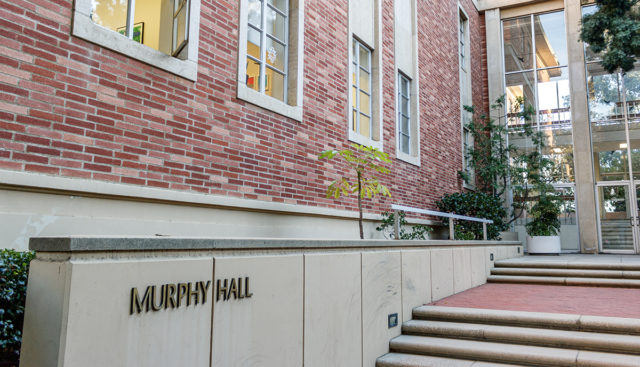The 2022-2023 California budget now requires state educational agencies to provide their students with assistance in filling out the FAFSA.
The FAFSA form for the 2023-2024 academic year opened Oct. 1 and is due in California by March 2, according to the United States Department of Education.
In California, around $500 million was left over from student aid funding allocations this year because of incomplete financial aid applications, said Denise Castro, a policy analyst at the Education Trust. Around $112 billion in federal financial aid was awarded to more than 10 million students at higher education institutions in 2021, according to the most recent federal student aid report.
Starting this year – as a result of the passing of California Assembly Bill 469 – all California high schools and charter schools, as well as the County Office of Education, must ensure their students complete and submit financial aid applications, Castro said, adding that students can also choose to opt out.
“We spent 13 years preparing our students for higher education,” she said. “Why not spend one more hour helping them complete their financial aid applications?”
Cristal Santaolaya, a third-year microbiology, immunology and molecular genetics student, said the policy marks progress for student aid and would have helped her during her senior year of high school. Their school only had two college counselors who were available to help with the FAFSA form, and they were often very busy, they added.
As a first-generation student, some of the questions did not apply to her, such as submitting parents’ social security numbers, Santaolaya said. Having better question and answer explainers on the form would also help, they said.
“It was definitely very, very confusing, and I don’t think I would have been able to fill it out on my own the first time if I didn’t get any help,” Santaolaya said.
The push for this program came from other states that had already implemented similar policies with positive results, Castro said. For example, Louisiana, after creating a statewide financial aid completion policy, surged to the number one state in the country for percentage of students that filled out their FAFSA forms – despite years of lagging behind at a lower ranking, according to the Louisiana Office of Student Financial Assistance.
This new policy can positively change the affordability of higher education in California and increase opportunities for millions of students, Castro said, adding that low income, first-generation students and students of color will especially benefit.
“This money is entitled to students. They have a right to it. That knowledge is making sure that our young people know about financial aid, and that their name is on it,” Castro said. “That’s for them to benefit and be able to help them to make college affordable.”
UCLA also provides opportunities to facilitate FAFSA completion locally, said UCLA spokesperson Ricardo Vazquez in an emailed statement. These efforts include the Destination College Advising Corps – which supplements college counseling with peer learning from recent college graduates – and the Early Academic Outreach Program, a pre-collegiate student academic development program that works with 44 high schools and eight middle schools.
Additionally, for each of UCLA’s partner high schools, there is a College Adviser Fellow who assists students with college access work such as financial aid applications, Vazquez said in the emailed statement.
Santaolaya said UCLA should also increase resources for current college students filling out the FAFSA, including adding more financial aid counselors and workshops on filling out the form as it continues to be updated and changed.
“It determines how much financial aid you’re going to get in college, so you really don’t want to mess up anything,” she said. “I feel just having a counselor or someone who can check and make sure everything is correct would really give assurance.”


Comments are closed.